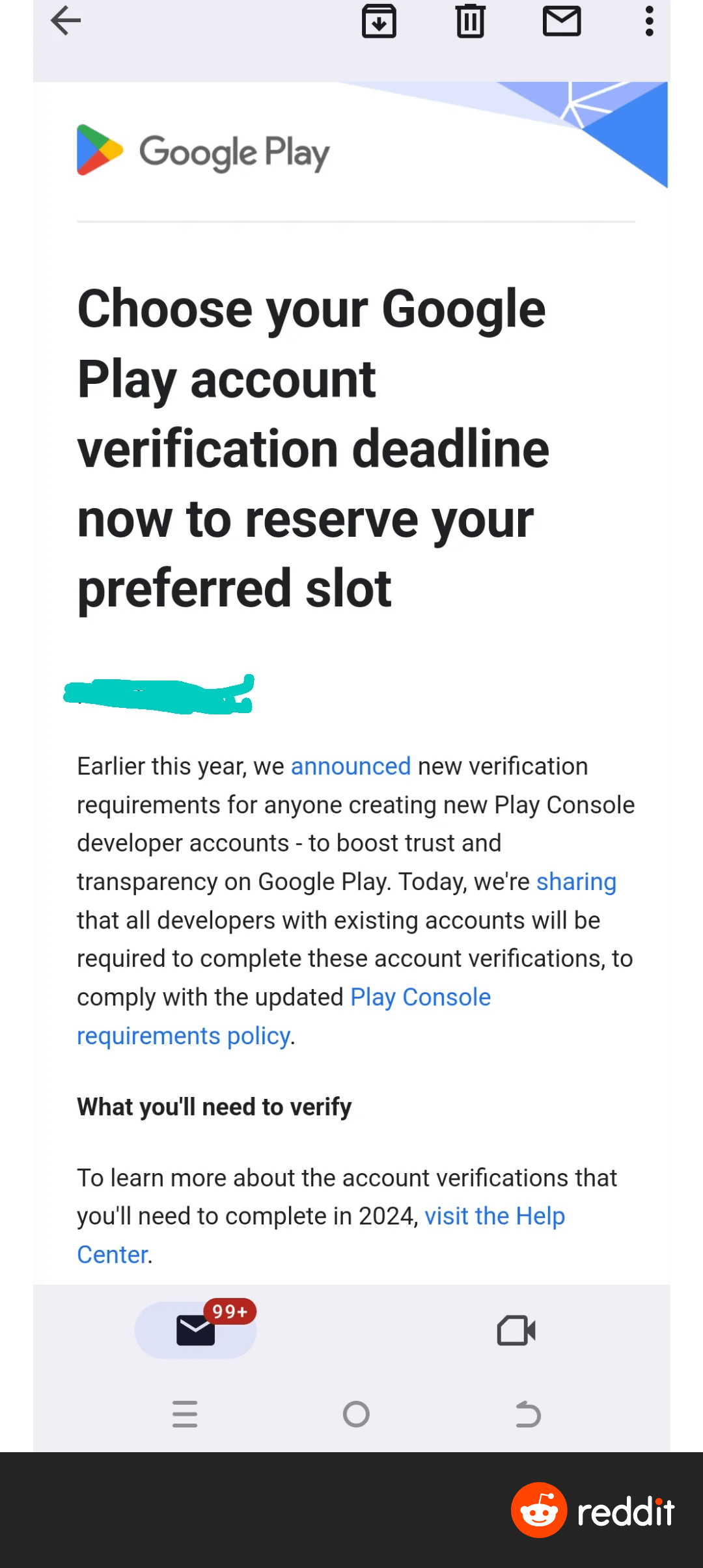In the continually evolving landscape of Android development, the new requirement for Android developer verification marks a significant shift in app distribution practices. With recent changes announced by Google aimed at enhancing security in Android apps, developers will soon face a mandatory verification process that involves submitting personal identification for all applications on certified devices. This developer verification requirement is set to alter how developers approach their app distribution strategies, including those who previously relied on sideloading APKs or alternative app stores. As these shifts take place, the implications for Android app users and developers are profound, pointing to a future where compliance with stringent standards is necessary to access millions of users. The increase in developer verification is not just a technical hurdle; it also signals a broader trend in the mobile app ecosystem’s pursuit of safety and legitimacy through the Google Play Store and beyond.
As we delve into the future of application development for Android, it’s crucial to recognize the implications associated with the official confirmation of developer validation. This verification process, which mandates developers to authenticate their identity and comply with new Google Play Store changes, positions itself as a response to growing concerns over security in mobile applications. The shifting landscape includes not only government ID verifications but also increased scrutiny on the practices of sideloading APKs—once a favored tactic among developers and users alike. By enforcing these comprehensive measures, Google is not just refining the distribution framework for Android apps; it is establishing a regime that aligns more closely with the app distribution dynamics of rival platforms. Thus, as we navigate through this emerging paradigm, understanding the ramifications of developer verification becomes essential for anyone engaged in Android development.
The Impact of Developer Verification on Android App Distribution
With Google introducing the requirement for developer verification, the landscape of Android app distribution is set to undergo a significant transformation. This verification process mandates that developers submit salient personal details, including a government-issued ID, impacting both new developers and existing ones who distribute apps through the Google Play Store. This change underscores Google’s commitment to enhancing security in Android apps, as it seeks to establish a more robust ecosystem that can deter malicious practices.
This developer verification requirement will mean that all applications must come from verified entities, fundamentally altering the dynamics of sideloading APKs. Developers accustomed to releasing apps through alternative app stores or engaging in sideloading methods may find themselves faced with obstacles, as using unverified sources will likely pose security issues for users. Consequently, the responsibility lies with developers to adapt quickly to this evolving framework, embracing new distribution models while ensuring compliance with Google’s regulations.
Understanding the Challenges of Sideloading and Alternative App Stores
Sideloading APKs has long been a favored approach for Android enthusiasts seeking to explore apps outside of the restrictive environment of the Google Play Store. However, the impending enforcement of developer verification complicates this practice considerably. As the ecosystem moves towards enhanced security, users may encounter a stark decline in the availability of trustworthy applications from alternative sources. This shift not only burdens developers but also influences users who rely on these unofficial channels for unique app experiences.
The introduction of security measures raises essential questions about the viability of alternative app stores like F-Droid. With the anticipated crackdown on unverified developers, users may find themselves with fewer options for downloading apps without the Google Play Store’s oversight. This could potentially lead to an environment rife with uncertainty, as users must navigate the risks associated with sideloading and the credibility of unverified apps. As developers pivot to meet these new requirements, they must also consider how their user base will adapt to these changes and what measures will keep them secure.
Google Play Store Changes: What Developers Need to Know
The recent changes announced by Google regarding the Play Store open a new chapter for Android app developers, emphasizing the significance of compliance with heightened security protocols. Developers must familiarize themselves with the mechanics of the verification process, as the successful navigation of these new rules will determine their ability to distribute applications effectively. This shift necessitates a thorough understanding of both the verification requirements and the implications for app visibility in an increasingly crowded marketplace.
Additionally, the changes signal a clear direction toward a more controlled environment, which may limit innovation historically fostered by the open nature of Android development. Developers may now consider the implications of these regulations on app monetization and audience reach. Embracing transparency, security, and compliance could provide pathways to effectively connect with users, but it also raises concerns about stifling creativity in a field where flexibility has been key to growth.
Security in Android Apps and the Transition to Verification
Security has become a paramount concern in the digital age, and Google’s decision to enforce developer verification reflects a broader strategy to mitigate risks associated with Android app installations. By requiring verification, Google aims to bolster user trust and ensure that apps are coming from authentic developers rather than malicious actors. This transition to a more secure model resonates with concerns surrounding app tampering, user data protection, and overall platform integrity.
However, while the intent behind increased security in Android apps is commendable, it also opens the discussion around the limitations it imposes on developers. Some may argue that this move favors larger, established developers who can easily navigate the verification process, while smaller or innovative developers may struggle to comply. Future discussions on the evolution of the Android ecosystem must address how to balance stringent security measures with the need to nurture creativity and accessibility in app development.
The Future of Android Development and Developer Verification
As we look towards the future of Android development, the rollout of developer verification requirements marks a pivotal shift that shapes how applications will be distributed and accessed. Expected to fully take effect globally by 2027, this change is poised to create a structured environment that mirrors the level of control found in Apple’s ecosystem. For developers, adapting to this new paradigm will be crucial in maintaining their competitive edge and connection with users.
In this new landscape, collaboration and community building among developers will become increasingly important. Sharing best practices regarding meeting compliance and exploring innovative distribution channels can empower developers to thrive. The focus will likely turn towards creating partnerships and leveraging user feedback to design apps that meet emerging demands while adhering to security protocols set forth by Google. Ultimately, the vision is for Android to evolve into a platform that blends security with the spirit of innovation.
Navigating the Regulatory Environment for Android Apps
Navigating the regulatory environment surrounding Android apps will demand a precise understanding of the new developer verification processes instituted by Google. The changes will create a landscape where organizations and individual developers must remain vigilant in compliance to maintain their distribution channels. This necessitates a robust understanding of regulatory implications, which could drastically affect how apps are launched, marketed, and maintained.
To prepare for these changes, developers may need to invest in legal counsel or compliance oversight to ensure adherence to the new standards. This shift significantly increases the regulatory burden on developers and could lead to fewer self-published apps cluttering the market. Understanding these requirements well in advance will provide developers the foresight needed to pivot their strategies without significant disruption.
Developer Verification: A New Era for Android Developers
The advent of developer verification is heralding a new era for Android developers who must contend with stringent compliance measures. As Google raises the bar for application distribution, developers are encouraged to enhance their development practices and build stronger reputations within the Android community. This focus on verification serves as a motivational factor for developers to engage in ethical coding practices and ensure high-quality app experiences.
Moreover, the developer verification requirement could act as a filter, improving the overall quality of apps available to users. It promotes accountability, as developers will be more inclined to avoid practices that lead to scams or rogue applications. Thus, while the transition may initially be challenging, it may culminate in a healthier ecosystem where users can trust the applications they download, redefining the Android app experience.
The Broader Implications of Google Play Store Changes
The broader implications of Google Play Store changes extend beyond mere verification requirements; they reflect a fundamental shift in how Google perceives its role in the app distribution landscape. By implementing strict guidelines for developers, Google signals its intent to control not only app quality but also user safety. This evolution could reshape the competitive dynamics of app development, influencing how developers approach marketing and user engagement.
Understanding these implications is critical for anyone involved in Android app distribution. Developers who embrace this transformation may find unique opportunities, such as tapping into a more discerning user base that aligns with the increased focus on high-quality and secure applications. However, with opportunity comes responsibility, pushing developers to prioritize best practices in security and app governance.
Preparing for the Shift: Key Strategies for Developers
In anticipation of the upcoming developer verification requirement, strategic foresight is essential for developers aiming to maintain their presence in the competitive Android app marketplace. Forward-thinking developers should focus on understanding the verification process, preparing any necessary documentation and ensuring that their business practices are transparent and above board. Learning about the implications of this shift will be pivotal in navigating the new landscape of app distribution.
In addition, engaging with communities and forums can serve as valuable resources for developers as they seek guidance from peers who have successfully navigated similar challenges. Building a network of support among fellow developers may provide insights into effective strategies for compliance and market adaptation. Establishing robust communication with users through transparency about app security and verification practices could foster trust and enhance user loyalty.
Frequently Asked Questions
What is Android developer verification and how does it affect app distribution?
Android developer verification is a new requirement by Google for developers to provide proof of identity, including a government-issued ID, to assure security in Android apps. This verification process is crucial for app distribution in certified Android devices, especially through the Google Play Store, as it will ensure that only verified developers can publish applications.
How does the developer verification requirement impact sideloading APKs?
With the upcoming developer verification requirement, sideloading APKs from unofficial sources may no longer circumvent Google’s security measures. As Google aims to enforce a whitelist of verified developers, users may face challenges when trying to install non-verified apps, diminishing the freedom traditionally associated with sideloading.
When will the Android developer verification changes start to roll out?
The initial trial phase for the Android developer verification will begin in October 2025, becoming accessible to all developers by March 2026. Following this, select countries will implement the verification requirement in September 2026, with a global rollout expected in 2027.
What are the security reasons behind the new developer verification requirement?
Google claims that the developer verification requirement is aimed at enhancing security in Android apps and protecting users from malicious applications. By ensuring that only verified developers can distribute apps on certified devices, Google hopes to reduce the risk of scams and improve user trust within the Android ecosystem.
Will the developer verification requirement limit the distribution of apps on the Google Play Store?
Yes, the developer verification requirement is likely to limit distribution on the Google Play Store by making it stricter. Only developers who complete the verification process will be allowed to publish apps, which may discourage hobbyists and open-source developers from participating in the Android app distribution landscape.
How will user experience change with the enforcement of developer verification on Android?
User experience may change significantly, as users will be restricted to downloading apps only from verified developers on certified Android devices. This could potentially limit choices for users who prefer to install apps from alternative sources or sideload APKs, impacting the overall openness of the Android platform.
What risks are associated with not complying with the developer verification requirement in Android?
Not complying with the developer verification requirement may result in the inability to distribute apps on certified Android devices, limiting a developer’s reach to potential users. Furthermore, non-compliance can lead to exposure to security vulnerabilities, as unverified apps may be more susceptible to malicious activities.
How does Google’s developer verification system compare to Apple’s app ecosystem?
Google’s upcoming developer verification system resembles Apple’s tightly controlled ecosystem where only verified developers can publish apps. This shift may position Android as a less favorable platform for open-source developers and hobbyists, as they might feel restricted by stricter verification and distribution policies.
| Key Point | Details |
|---|---|
| Introduction of Developer Verification | Google will require verification for apps on certified Android devices. |
| Sign-up Requirements | Developers must submit a scan of their government ID and contact details. |
| Impact on Sideloading & Alternative Stores | Workarounds like sideloading will not circumvent these verification requirements. |
| Timeline for Changes | Trials begin in October 2025; global rollout expected by 2027. |
| First Locations for Enforcement | Brazil, Indonesia, Thailand and Singapore will be first to enforce in September 2026. |
| Concerns Over Security | The system does not prevent scammers or malicious apps effectively. |
| Potential Outcomes | Android may become less appealing to hobbyists and open-source developers. |
Summary
Android developer verification is a significant shift in how applications will be managed on Android devices. With Google’s upcoming requirement for developer verification, developers are expected to adhere to stricter guidelines and enhance their security measures. This change not only impacts the developers but also the end-users who rely on safe and secure applications. As the rollout progresses towards 2027, developers will need to adapt to these new standards, which may lead to a notable transformation of the Android ecosystem.












